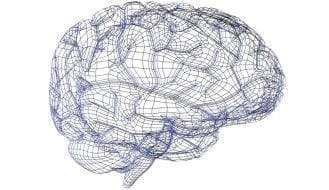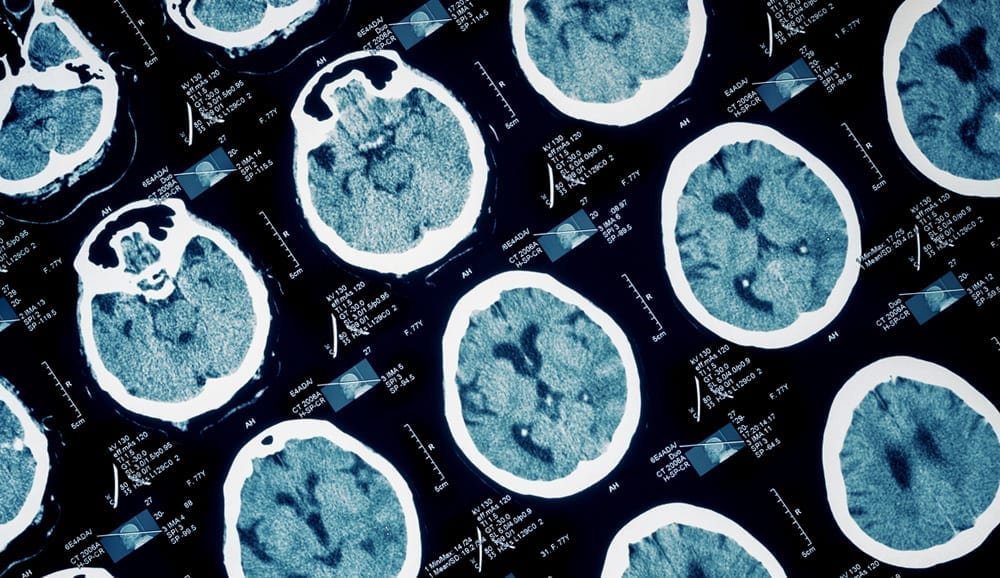The Neuroprotective Benefits of Omega-3 and Melatonin for TBI
She was lying in the emergency room with a scruffy, cracked helmet perched on her stomach.
“I guess it could have been a cracked skull instead if a holey helmet,” she joked.
Helene, age 16, had flown, head first, onto the ground when her horse refused the jump. It was estimated that she laid there unconscious for about 1 minute before her riding partner found her by the side of the path.
“You are lucky you’ll only need a new helmet, not a new head,” I replied, after examining her. “But we still have work to do to get you well.”
Reckoning with Traumatic Brain Injury
Traumatic Brain Injury, or TBI for short, is one of those frightening medical conditions you hope you never experience. Unfortunately though, TBI is more common than many people realize.
In the US alone, more than 3 million people get a TBI annually (1). People who participate in the military and sports, like football or riding horses, are at higher risk for injury. But other activities — like driving a car and getting in an accident, or taking a fall — might also result in TBI.
It is estimated that 1 in 5 children experience a mild TBI by the age of 10 (2). This milder form can often go unnoticed, yet still cause significant health issues.
Contact sports, like football, or riding horses (especially without a helmet, like the woman in this picture) put you at risk for getting a TBI.
What Happens When You Get A TBI?
When we think of brain injuries, we often picture the initial accident and the immediate aftermath: Losing consciousness, blurred vision, headache, etc (3). These are all outwards symptoms of TBI. But even after these initial symptoms pass, the trauma has often just begun.
Initial brain damage can cause a secondary impact on the brain or spinal cord, which can continue for hours, days, and weeks after the primary head injury. These secondary brain injuries occur because of the brain’s unique positioning in the body: The brain is enclosed in a bony encasement and has no room to expand.
When the brain gets inflamed, heat and swelling cause a whole cascade of cellular and molecular events, which can damage brain cells. In addition, bleeding or fluid buildup in the brain will increase pressure on the remaining brain cells.
Secondary injuries can cause mitochondrial damage, cell death, inflammation, and — in layman’s terms — an inability of the nerve cells to communicate with one another. It’s the breakdown of the nerve cell communication system that can lead to many of the symptoms connected with brain injuries: Headaches, sleep disturbances, sensitivity to light, or even some behavioral changes, like mood swings, anxiety, etc.
The Brain Benefits of Omega-3 + Melatonin
The good news is that both omega-3 and melatonin seem especially effective at controlling these secondary injuries. Let’s examine the neuroprotective abilities of both omega-3 and melatonin:
Reducing Oxidative Stress
As discussed above, one of the key issues with TBI is brain cell injury. How do brain cells become injured? One culprit is oxidative stress — a phenomenon that is increased when you have a brain injury (4). Oxidative stress occurs when oxidants get the upper hand over antioxidants. It changes the forms of lipids and proteins so they no longer are able to perform their duties. Oxidative stress can also cause DNA and RNA to fragment.
Melatonin is especially effective at reducing oxidative stress. You can think of it as helping protect your car engine from getting rusty…except in this case, the car engine is your brain. Instead of letting single oxygen molecules and lipid peroxide radicals steal electrons from other molecules and creating “rust” in your brain, melatonin hunts down these nasty free oxygen radicals. This helps protect the omega-3 molecules, which in turn allows the omega-3s to carry out their anti-inflammatory work in the cell. It is also important for protecting organelles, like the mitochondria, from damage.
The omega-3s also do their part in fighting oxidative stress. A July 2017 study from China concluded that EPA and DHA help protect brain cells from oxidative stress and also assist in preventing mitochondrial death. The researchers noted, however, that the neuroprotective benefits of EPA and DHA seemed to depend on the molecular form and the dose administered (5).
Reducing Inflammation in the Brain
Melatonin and omega-3 also help reduce the inflammation response in the brain. Melatonin suppresses signaling pathways that play a big role in oxidative stress-induced inflammation. Melatonin also downregulates the expression of proinflammatory genes, essentially telling genes that create inflammation to hold up for awhile.
As for the omega-3 fatty acids, they work together with melatonin to help fight ongoing inflammation. EPA and DHA (and also probably DPA) act as substrates for important neuroprotective molecules call protectins and resolvins. Protectins and resolvins do exactly what their names say: They resolve/restore brain tissue back to its original state and protect the brain from oxidative stress.
Getting a Balance of Omega-6 to Omega-3
When we talk about omega-3, it’s worth noting that the benefits depend somewhat on the totality of our diet. When we eat a diet rich with the vegetable oils found in most of our processed foods, we are getting a surplus of omega-6 fatty acids. The omega-6 fatty acids are proinflammatory, forming the building blocks for the inflammation-stimulating eicosanoids.
The omega-3 fatty acid EPA puts a damper on the production of eicosanoids. Thus, if you consume enough omega-3 and reduce your omega-6 intake, it will help reduce inflammation in the body.
Protecting Memory and the Neurons in the Brain
Besides fighting inflammation and oxidative stress, omega-3s also help normalize the levels of BDNF (brain-derived neurotrophic factor). BDNF is important for protecting long-term memory and helps promote the growth and survival of neurons in the brain. Moreover, BDNF improves the transmission of signals between brain cells. By helping normalize the BDNF levels, the omega-3s indirectly relieve the effects of lasting brain damage (6).
Does Timing Matter?
The research on omega-3 and melatonin for TBI looks very promising. One big question though is at what stage you need to start supplementing with omega-3 for it to make a difference.
Some studies have shown that the effects of TBI were more dramatic in animals with omega-3 deficient diets (7). Studies have also shown that clinical outcomes were improved when omega-3s were supplemented before injury (8). These findings suggest that having a regular dietary intake of omega-3 is important for recovery.
Other studies recommend using of fish oil as soon as possible after injury, even in the emergency department, if possible. Additionally, one study on Spinal Cord Injury found that when DHA was given within an hour of the injury, neuromotor function was maintained. However, when DHA supplementation was delayed by 4 hours, the researchers did not observe the same beneficial effects (8).
This is not to say that if you have a TBI, starting fish oil and melatonin at a later date won’t help. But it is possible that how soon you start supplementing with fish oil and melatonin will impact your recovery in the event of an injury.
Using Omega-3 and Melatonin In Practice
In the event of a TBI, supplementing with melatonin and omega-3 combined have the potential to do a lot of good without many side effects. But in order to use them effectively, a trip to your nearest Walgreens is not enough.
For omega-3s, you have to be aware of the quality you are getting. Research shows that if the omega-3 fatty acids become oxidized (or turn rancid), they are not able to provide protective brain benefits and can instead increase oxidative stress and inflammation (9).
It is also important to get an effective omega-3 and melatonin dose. For more on that, visit these two articles:
https://omega3innovations.com/blog/how-much-omega-3-fish-oil-daily-will-produce-results/
https://omega3innovations.com/blog/finding-your-optimal-melatonin-dose/
Thoughts for Helene
It has been over two decades since I saw Helene. Thinking back to her and knowing what I know today, here’s what I would say:
Rest and get plenty of sleep so the brain can recover. Avoid exacerbating activities such as vigorous athletics or any sport where you might be at risk of getting a second head injury. Also, avoid alcohol.
Consult with your doctor to create a comprehensive plan for your recovery. And yes, do consider your daily omega-3 intake and how your lifestyle impacts your body’s melatonin production.
It’s not just important for you in this period of recovery; it’s crucial for your brain health going forward. And just like wearing a helmet safeguards you in the case of an accident, melatonin and omega-3 make all the difference when life has you tumbling to the ground.
For More Restful Sleep and Energy
Experience the Omega3 Innovations difference for yourself with the most effective fish oil supplement on the market.
Buy Now
1. Hasadsri, L. et al. Omega-3 fatty acids as a putative treatment for traumatic brain injury. Journal of Neurotrauma (2013) Jun 1. 30(11): 897-906. doi: 10.1089/neu.2012.2672.
2. Barlow, K. M. et al. A double-blind, placebo-controlled intervention trial of 3 and 10 mg sublingual melatonin for post-concussion syndrome in youths (PLAYGAME): study protocol for a randomized controlled trial. Trials 15 (2014): 271. http://doi.org/10.1186/1745-6215-15-271
3. Duke Medicine. Blasts may cause brain injury even without symptoms: Veteran study. ScienceDaily. March 3, 2014.
4. Toklu, H.Z., Tümer, N. Oxidative stress, brain edema, blood–brain barrier permeability, and autonomic dysfunction from traumatic brain injury. Brain Neurotrauma: Molecular, Neuropsychological, and Rehabilitation Aspects. Boca Raton (FL): CRC Press/Taylor & Francis; 2015. Chapter 5.
5. Che, H. et al. Neuroprotective effects of n-3 polyunsaturated fatty acid-enriched phosphatidylserine against oxidative damage in PC12 cells. Cellular and Molecular Neurobiology (2017) Jul 8. doi: 10.1007/s10571-017-0516-y.
6. Kumar, P. R., Essa, M. M., Al-Adawi, S., Dradekh, G., Memon, M. A., Akbar, M., & Manivasagam, T. Omega-3 fatty acids could alleviate the risks of traumatic brain injury – A mini review. Journal of Traditional and Complementary Medicine (2014) 4(2), 89–92. http://doi.org/10.4103/2225-4110.130374
7. Ying, Z., Feng, C., Agrawal, R., Zhuang, Y., and Gomez-Pinilla, F. Dietary omega-3 deficiency from gestation increases spinal cord vulnerability to traumatic brain injury-induced damage. PLoS One (2012) Dec 28. 7(12):e52998. doi: 10.1371/journal.pone.0052998.
8. Lewis, M., Ghassemi, P., Hibbeln, J. Therapeutic use of omega-3 fatty acids in severe head trauma. American Journal of Emergency Medicine (2013) Jan. 31(1): 273.e5-8. doi: 10.1016/j.ajem.2012.05.014.
9. Grimm, M.O. et al. Oxidized docosahexaenoic acid species and lipid peroxidation products increase amyloidogenic amyloid precursor protein processing. Neurodegenerative Diseases (2016). 16(1-2):44-54. doi: 10.1159/000440839
Popular posts



Related posts









